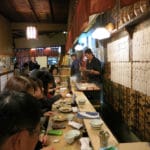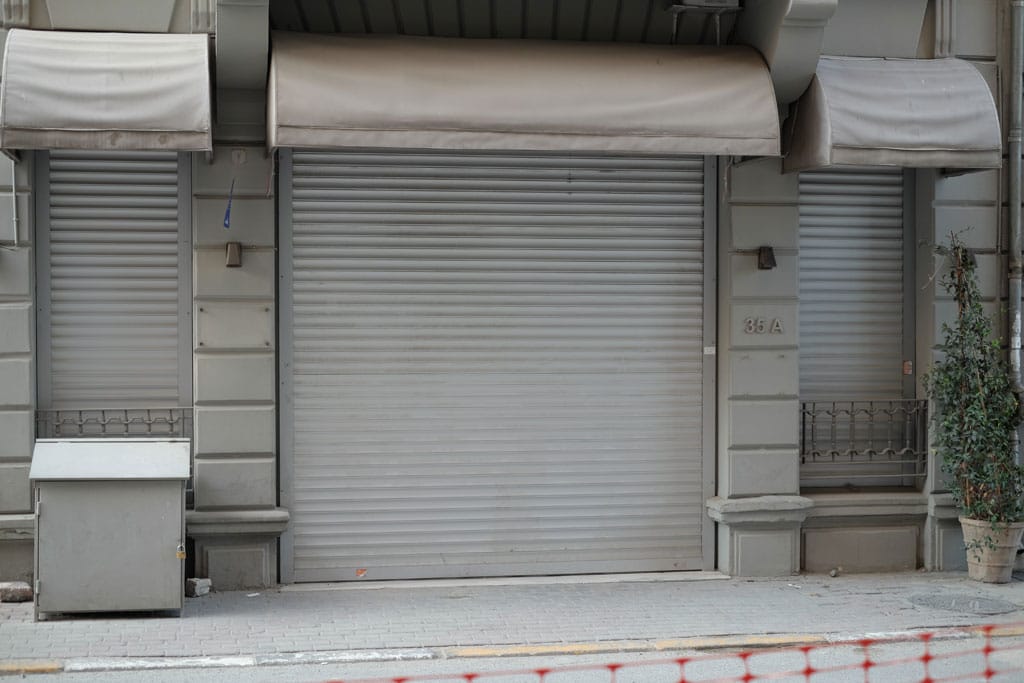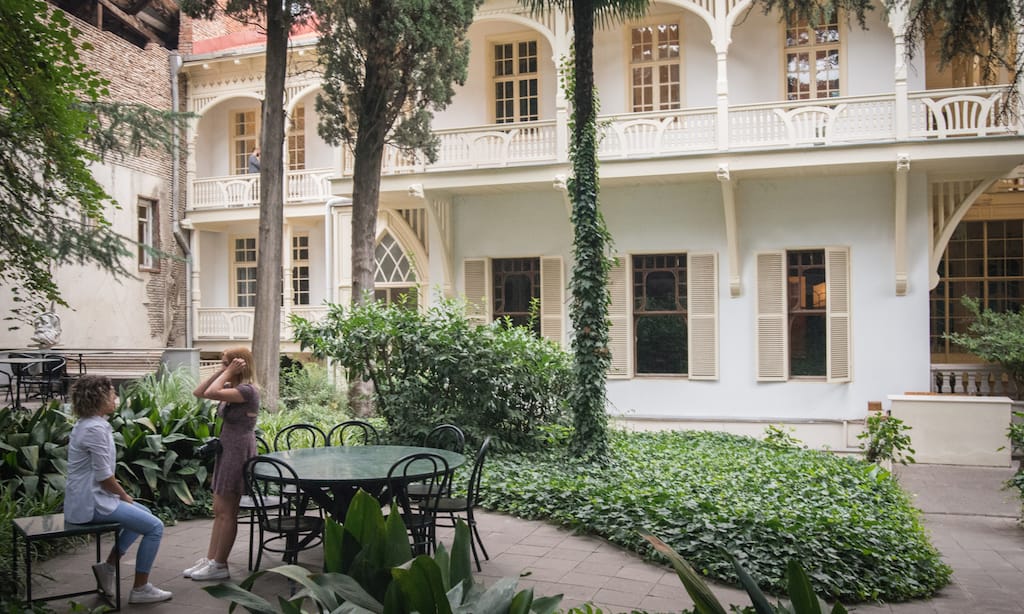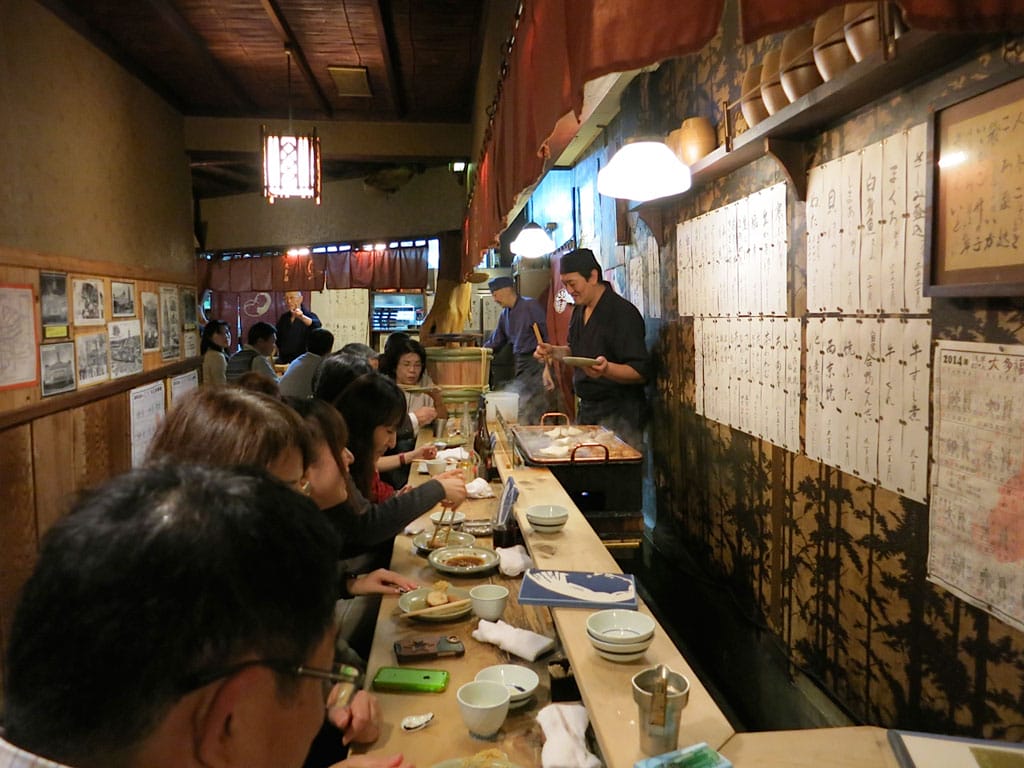When Didem Şenol decided to open her first restaurant on an out-of-the-way street in the then-sleepy Karaköy neighborhood of Istanbul, the young chef’s friends thought she was making a huge mistake.
“They said, ‘Are you crazy? There’s nothing there, no one will go there.’ But Karaköy was close to my home in Galata, and I enjoyed the historic feeling of all the old buildings there,” Şenol reminisced last month over coffee at her deli/café Gram in Şişhane, another formerly sleepy Istanbul neighborhood. “I thought if we made good food, people would hear about it and come.”
Her gamble paid off. The first six months after the May 2010 opening were difficult, but Şenol and her restaurant, Lokanta Maya, quickly started drawing accolades – and crowds of locals, expats and tourists alike. The neighborhood flourished around them, turning a tumbledown commercial area into a global hipster hub, as swish cafes, galleries, boutiques and restaurants quickly filled Karaköy’s narrow streets.
But a string of terror attacks and ongoing strife in Turkey have led to dramatic drops in tourism and changes in the dining habits of Istanbul locals, both of which took their toll on Lokanta Maya’s business over the past year. With no upswing in sight, Şenol decided to shutter the restaurant’s doors at the end of July.
“Closing a restaurant is really hard, both psychologically and financially. But it’s also hard to keep everyone motivated when there are no customers,” Şenol said. “I kept thinking things would be better once people forgot about these [terror] incidents, but they kept happening; there was no time to forget.”
Three suicide bombings have targeted tourists in Istanbul this year, in Sultanahmet, on Istiklal Caddesi and at Atatürk Airport. Add in terror attacks elsewhere in the country, stepped-up conflict in Turkey’s southeast, the war in neighboring Syria and the failed military coup in July, and it’s no surprise that international arrivals have plummeted. Nearly 65 percent of hotel rooms in Istanbul sat empty in July, according to Reuters, and the figures are even worse in the Beyoğlu district where Lokanta Maya was located, with 80 percent of rooms vacant as of early August.

Hotels whose concierges used to send guests regularly to dine at Lokanta Maya told Şenol that their business hasn’t been this bad since the global financial crisis of 2008. While Istanbul and Turkey as a whole are hurting, Beyoğlu has been hit especially hard. It’s impossible not to notice all the kıralık (“for rent”) signs on apartments and storefronts alike – and hard not to feel like Beyoğlu has in some ways become the victim of its own success.
“When I was a teenager, this area was terrible; there were places like Asmalımescit where it wasn’t even safe to walk,” Şenol recalled. But the cheap rents and edgy atmosphere drew artists, musicians and other urban adventurers, and as Turkey’s economy improved and Istanbul’s cultural cachet grew, mass gentrification followed. Landlords leaped to convert their buildings into apartment hotels or short-stay units, driving up rents for local residents. The crumbling hans on Istiklal Caddesi where dark, creaking staircases once led to raucous meyhanes and bars were covered with scaffolding and then unveiled as spruced-up simulacrums of their former selves, their grand façades now filled with chain retailers and posh hotel rooms. Even now, Turkish conglomerate Doğus Holding is moving ahead with a $1.5-billion luxury port project for the Karaköy area around Lokanta Maya.
 It wasn’t only big corporations that benefitted from the boom. Şenol’s success with Lokanta Maya allowed her to open three branches of Gram, following the original Şişhane location with outposts in the Maslak and Levent business districts. “I also thought Istanbul would just keep going up and up,” she laughed.
It wasn’t only big corporations that benefitted from the boom. Şenol’s success with Lokanta Maya allowed her to open three branches of Gram, following the original Şişhane location with outposts in the Maslak and Levent business districts. “I also thought Istanbul would just keep going up and up,” she laughed.
While Lokanta Maya drew a largely Turkish crowd in its first couple of years of operation, sterling write-ups in the New York Times, airline magazines and other international publications brought in tourists in droves – but also created some complications. “Guests who come from abroad like to book early, while Turkish guests want to be able to call at 6 p.m. and get a table for 8 p.m. that same night,” Şenol said. “After a while, they decided not to call us anymore when we were always full up for those last-minute bookings.”
Now the tourists aren’t calling either. The recent loss of international visitors has been felt especially keenly in the summer months, when many Turks head off to the beach or their ancestral villages, and those who remain in Istanbul prefer to take their meals on open-air rooftops and sidewalk tables rather than in a cozy dining room like the one at Maya. But even restaurants less dependent on tourist clientele are feeling the pinch, Şenol said.
“Everyone I talk to in the business is thinking about getting smaller, about having less staff. Beyoğlu has been affected the most, but even the owner of a 50-year-old restaurant up in Tarabya [on the European Bosphorus shore] told me he’s never seen times this bad, business-wise,” Şenol said. “Our moods are so affected by all the things that are going on [in Turkey]. People want to stay closer to home; they don’t feel like going out and socializing like they used to anymore.”
Business at Gram, which mostly serves a lunch-time crowd of local office workers, has been more resilient, but the customer flow has slowed at the Pera location, as the design firm Autoban, ad agency Rafineri and telecommunications giant Turkcell all vacated their nearby offices. Şenol announced at the beginning of September that she was closing Gram Pera and reopening in Bosphorus-front Bebek.
Ironically, some of the very things that brought discerning eaters to Şenol’s restaurants in the first place have made it more challenging to weather the storm. The chef distinguished herself with her short menu of innovative dishes featuring fresh, seasonal, local ingredients, a concept that was quite new to Istanbul dining at the time.

“When I started out as a line cook in Istanbul in the early/mid-2000s, the popular thing was international cuisine. Maya drew people who were curious about my new way of doing things, who wanted to eat real Turkish food, not just kebabs, in a nice setting,” Şenol said. “Compared to 10 or 15 years ago, there are a lot more chef-owned restaurants, people now know a lot more about things like good olive oil and good wine; they’re more interested in small producers and regional specialties like the tomato and pepper pastes we get from Edremit or the nar ekşisi [pomegranate extract] we get from Hatay.”
“But when you have few guests, it’s hard to have quality food. We don’t freeze anything, we’re always buying fresh ingredients every day, and buying food with no additives, so it has a short shelf-life,” she added. “Everything just works better in a restaurant like ours when it’s packed – the food, the service, everything.”
Recalling difficult times in Turkey’s past, like the 1980 military coup and the street violence that led up to it, Şenol expressed optimism for the country’s longer-term future: “We got through that, and we’ll do it again. Things can’t be like this forever.” But for now she feels the wiser course is to lay a bit low, to consolidate resources rather than let them slip away.
“This year isn’t the best time to start something new. It’s like my father used to say, ‘Kütükler giderken, toplaması lazım.’ When the river brings you wood, collect it and put it away,” Şenol said. “When I talk to young chefs, I tell them to go abroad and get some experience there, or go around Turkey and find new ingredients and small producers; they need us, and we need them.”
Even in this period of retrenchment, Şenol’s thoughts still look ahead to the prospect of better times. “My decision to close Maya was mostly made in order to leave with the quality still high,” she said. “That way, if I open up again somewhere else in the future, people will hopefully still remember Maya in a good way.”
 July 18, 2019 Cafe Littera
July 18, 2019 Cafe Littera
On June 20, Georgian Prime Minister Mamuka Bakhtadze signed a decree abolishing the […] Posted in Tbilisi April 1, 2024 Pastiera
April 1, 2024 Pastiera
Like the Proustian madeleine, sweets can stir up all kinds of feelings in the minds of […] Posted in Naples January 15, 2024 Otafuku
January 15, 2024 Otafuku
The weather is turning cold and Japan’s convenience stores, or konbini, have hauled out […] Posted in Tokyo
Published on September 09, 2016
Related stories
July 18, 2019
TbilisiOn June 20, Georgian Prime Minister Mamuka Bakhtadze signed a decree abolishing the Writer’s House of Georgia, Tbilisi’s leading institution of literary culture and the home of Cafe Littera, the restaurant that gave birth to the culinary revolution Georgia is currently going through. As soon as the ink was dry, the Writer’s House accounts were…
April 1, 2024
NaplesLike the Proustian madeleine, sweets can stir up all kinds of feelings in the minds of those who eat them. In Naples, struffoli (small, round doughnuts glazed with honey) and cassata (sponge cake with ricotta and candied fruit) speak of Christmas, while chiacchiere (sugar-dusted fritters) and sanguinaccio (literally “blood pudding,” but actually made of chocolate)…
January 15, 2024
TokyoThe weather is turning cold and Japan’s convenience stores, or konbini, have hauled out the oden service pans and positioned them next to the cashier counters. For those not familiar with oden, the sight of assorted flotsam and jetsam afloat in a clear broth and the fishy aroma impinging on their space while paying for…



















































































